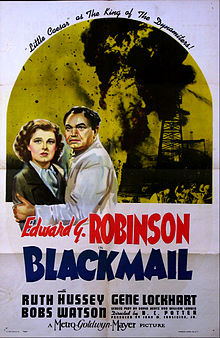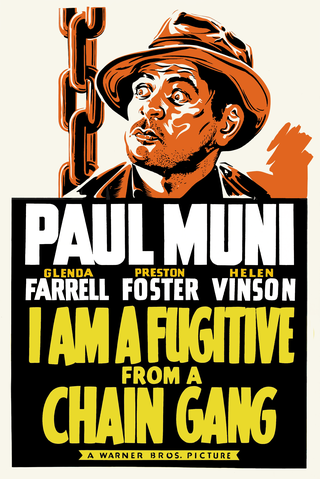
I Am a Fugitive from a Chain Gang is a 1932 American pre-Code crime tragedy film directed by Mervyn LeRoy and starring Paul Muni as a convicted man on a chain gang who escapes to Chicago. It was released on November 10, 1932. The film received critical acclaim and was nominated for three Academy Awards including Best Picture and Best Actor for Muni.

A Christmas Carol is a 1938 American drama film adaptation of Charles Dickens's 1843 novella of the same name, starring Reginald Owen as Ebenezer Scrooge, an elderly miser who learns the error of his ways on Christmas Eve after visitations by three spirits. The film was directed by Edwin L. Marin from a script by Hugo Butler.

Edwin Eugene Lockhart was a Canadian-American character actor, playwright, singer and lyricist. He appeared in over 300 films, and received an Academy Award nomination for Best Supporting Actor for his role as Regis in Algiers (1938), the American remake of Pepe le Moko.

Smart Money is a 1931 American pre-Code drama film produced and distributed by Warner Bros., directed by Alfred E. Green, and starring Edward G. Robinson and James Cagney. It is the only occasion Robinson and Cagney appeared in a film together, despite being the two leading actors, mainly portraying gangsters, at Warner Bros. studios throughout the 1930s. Smart Money was shot after Robinson's signature film Little Caesar had been released and during the filming of Cagney's breakthrough performance in The Public Enemy, which is how Cagney came to play a supporting role.
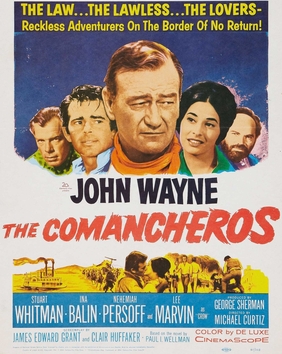
The Comancheros is a 1961 American CinemaScope Western film directed by Michael Curtiz, based on a 1952 novel of the same name by Paul Wellman, and starring John Wayne and Stuart Whitman. The supporting cast includes Ina Balin, Lee Marvin, Nehemiah Persoff, Bruce Cabot, Jack Elam, Joan O'Brien, Patrick Wayne, and Edgar Buchanan. Also featured are Western-film veterans Bob Steele, Guinn "Big Boy" Williams, and Harry Carey, Jr. in uncredited supporting roles.
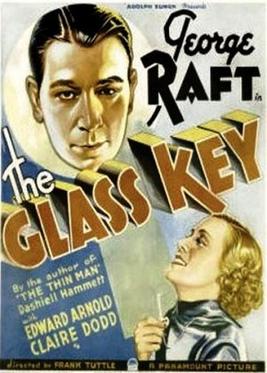
The Glass Key is a 1935 American crime drama film directed by Frank Tuttle starring George Raft, Edward Arnold, Claire Dodd, Guinn "Big Boy" Williams and Ray Milland. Ann Sheridan has a brief speaking role as Raft's character's nurse in their first film together. Produced and distributed by Paramount Pictures, it was based upon the 1931 suspense novel The Glass Key by Dashiell Hammett,

Plymouth Adventure is a 1952 American Technicolor historical drama film with an ensemble cast starring Spencer Tracy, Gene Tierney, Van Johnson and Leo Genn, made by Metro-Goldwyn-Mayer, directed by Clarence Brown, and produced by Dore Schary. The screenplay was adapted by Helen Deutsch from the 1950 novel The Voyage of the Mayflower by Ernest Gébler. The supporting cast includes Barry Jones, Dawn Addams, Lloyd Bridges and John Dehner.

The Sea Wolf is a 1941 American adventure drama film adaptation of Jack London's 1904 novel The Sea-Wolf with Edward G. Robinson, Ida Lupino, John Garfield, and Alexander Knox making his debut in an American film. The film was written by Robert Rossen and directed by Michael Curtiz.
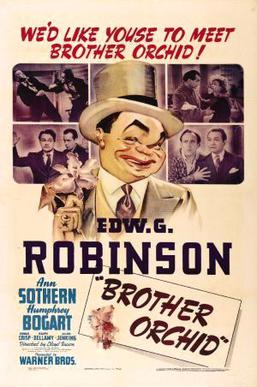
Brother Orchid is a 1940 American crime/comedy film directed by Lloyd Bacon and starring Edward G. Robinson, Ann Sothern and Humphrey Bogart, with featured performances by Donald Crisp, Ralph Bellamy and Allen Jenkins. The screenplay was written by Earl Baldwin, with uncredited contributions from Jerry Wald and Richard Macauley, based on a story by Richard Connell originally published in Collier's Magazine on May 21, 1938. Prior to the creation of the movie version of Connell's story, a stage adaptation was written by playwright/novelist Leo Brady. The script was originally produced at Catholic University of America in Washington, D.C..

Brown of Harvard is a 1926 American silent drama film directed by Jack Conway, and starring William Haines, Jack Pickford and Mary Brian. Released by Metro-Goldwyn-Mayer, the film is based on the successful 1906 Broadway play Brown of Harvard by Rida Johnson Young, who also co-wrote the popular music for the play along with Melvin Ellis. The film is best known of the three Brown of Harvard films. It was John Wayne's film debut. Uncredited, Wayne played a Yale football player. Grady Sutton and Robert Livingston, both of whom went on to long and successful careers, also appear uncredited. The 1918 film included future Boston Redskins coach William "Lone Star" Dietz and the only Washington State University football team to win a Rose Bowl.

Minor Watson was a prominent character actor. He appeared in 111 movies made between 1913 and 1956. His credits included Boys Town (1938), Yankee Doodle Dandy (1942), Kings Row (1942), Guadalcanal Diary (1943), Bewitched (1945), The Virginian (1946), and The Jackie Robinson Story (1950)

Daredevil Jack is a 1920 American silent 15-chapter action film serial directed by W. S. Van Dyke and starring heavyweight champion Jack Dempsey and featuring Lon Chaney as a villain. The chapters were shown weekly between February and May 1920. The serial's working titles were Daredevil Durant or Dead or Alive. An incomplete copy of the film is housed in the UCLA Film and Television Archive.
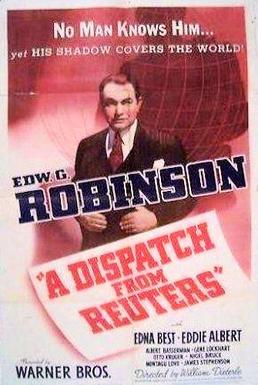
A Dispatch from Reuters is a 1940 biographical film about Paul Reuter, the man who built the famous news service that bears his name. The film was directed by William Dieterle and stars Edward G. Robinson.
John Wray was an American character actor of stage and screen.

The King's Thief is a 1955 swashbuckling CinemaScope adventure film directed by Robert Z. Leonard, who replaced Hugo Fregonese during filming. Released on August 5, 1955, the film takes place in London at the time of Charles II and stars Ann Blyth, Edmund Purdom, David Niven, George Sanders and Roger Moore.

Five and Ten is a 1931 American pre-Code romantic drama film directed by an uncredited Robert Z. Leonard and starring Marion Davies, Leslie Howard and Irene Rich. Davies plays as an heiress and Howard the man she loves, though he marries someone else. The film was produced by William Randolph Hearst's Cosmopolitan Productions in partnership with Metro-Goldwyn-Mayer. It is based on the 1929 Fannie Hurst novel of the same name.
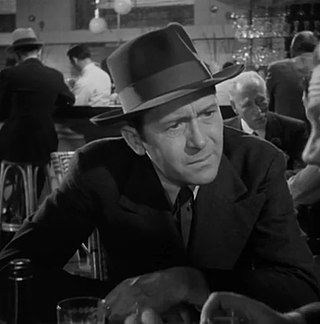
James Harlee Bell was an American film and stage actor who appeared in about 150 films and television shows through 1964.
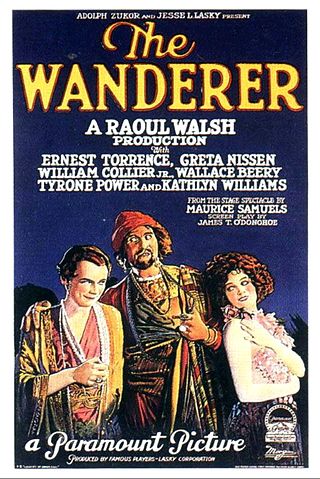
The Wanderer is a 1925 American silent drama film directed by Raoul Walsh and starring Greta Nissen, Wallace Beery, and Tyrone Power Sr. It was distributed by Paramount Pictures.

Godless Men is a 1920 American silent adventure drama film directed by Reginald Barker and produced and distributed by Goldwyn Pictures. It stars Russell Simpson and James "Jim" Mason as a father and son. It is based on a Saturday Evening Post short story "Black Pawl" by Ben Ames Williams.

I, Jane Doe is a 1948 American drama war film directed by John H. Auer and written by Lawrence Kimble and Decla Dunning. The film stars Ruth Hussey, John Carroll, Vera Ralston, Gene Lockhart, John Howard and Benay Venuta.
